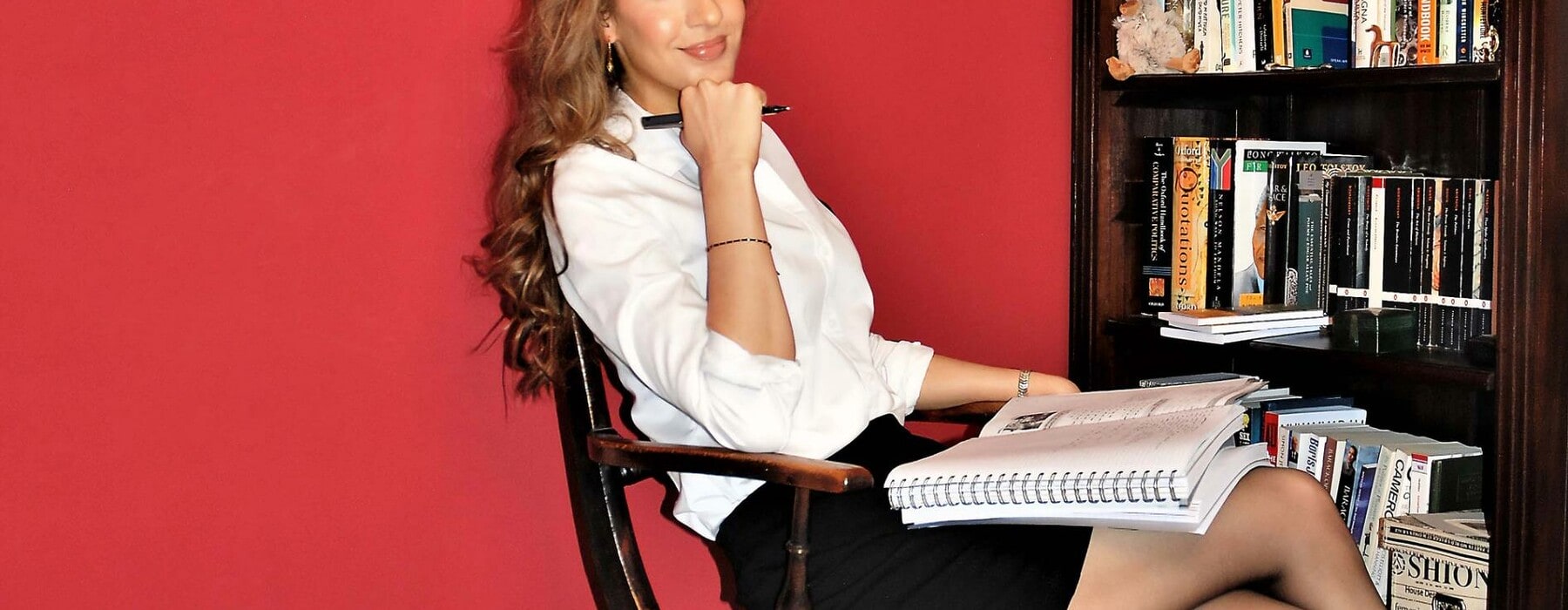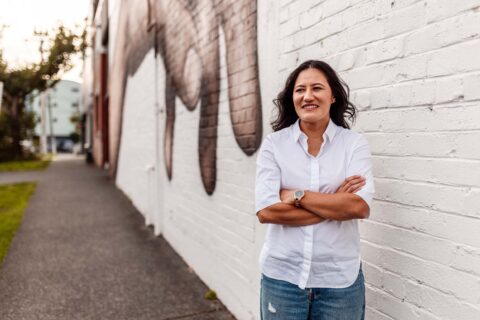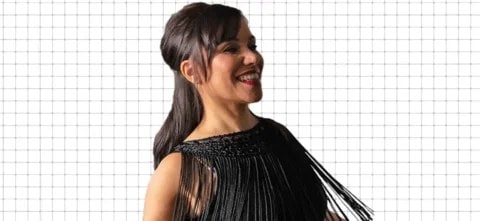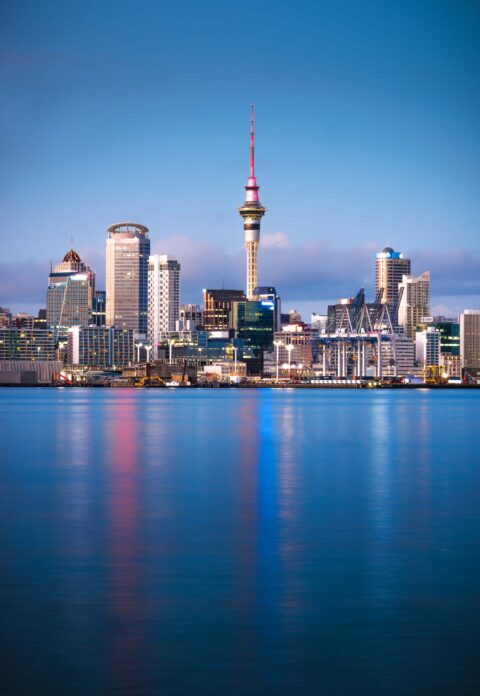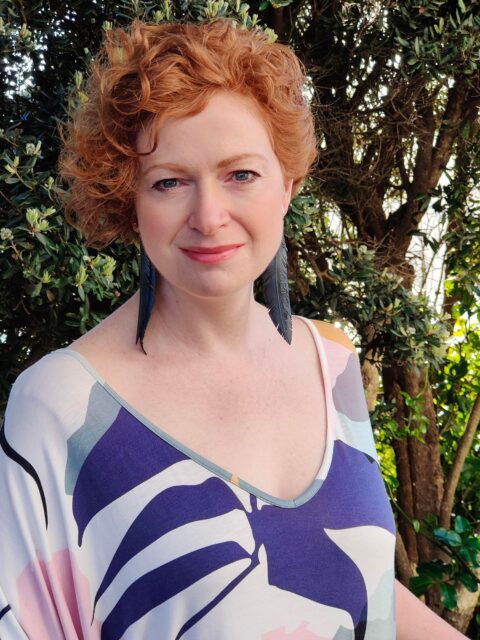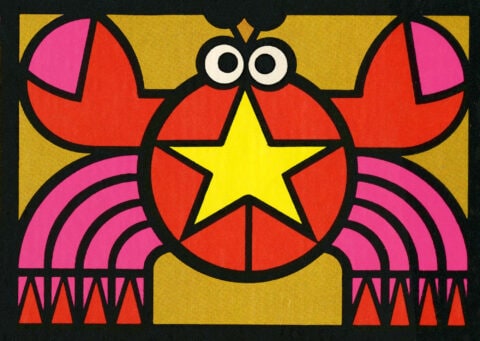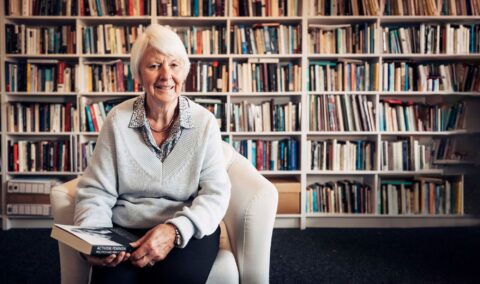Bitten by the political bug as a teenager, New Zealand-born Bianca Nobilo now fronts her own show on CNN. She tells Sharon Stephenson about her fighting spirit and why she wants a word with British PM Boris Johnson.
Britain is still in lockdown when we speak, but while the rest of the nation bakes sourdough and declutters wardrobes, London-based Kiwi journalist Bianca Nobilo is jumping through political hoops, trying to secure an interview with Prime Minister Boris Johnson. This is life when you’re a CNN anchor and correspondent with your own weeknight show, The Brief with Bianca Nobilo. “Boris is someone I’m desperate to talk to, mainly so he can explain the approach he’s taken with the virus,” says Bianca, 31, a posh British accent coating her Antipodean vowels.
When we chat, it’s 9pm UK time and the night chill is wrapping itself around Bianca’s mother’s house in Surrey, where she has relocated for lockdown. Home is usually a rented apartment in Westminister with a view of the River Thames and the Houses of Parliament, where Bianca once worked as a political campaigner and researcher, but now grills politicians for CNN.
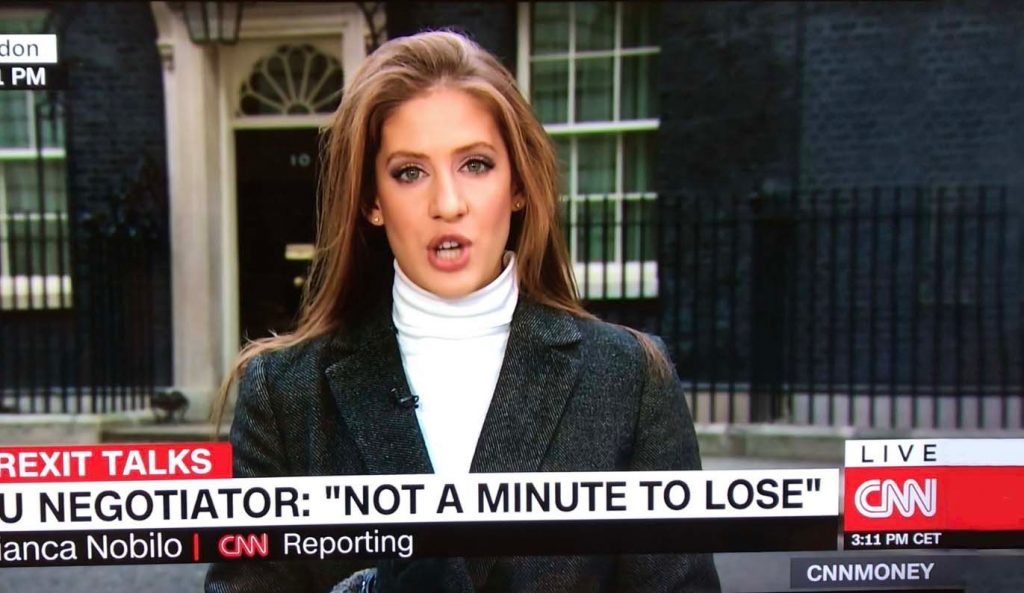
“I moved in with Mum for lockdown because she’s got a lovely place next to a forest where I can walk every day. It also meant I could get a kitten.” The proud cat mother later emails me photos of Luna, her tiny ragdoll kitten.
If the name Nobilo rings any bells, it’s because Bianca’s father is Frank Nobilo, a professional Kiwi golfer whose wildly successful career in the ’90s put New Zealand on the international pro-golfing map. How Auckland-born Bianca ended up on the other side of the world is down to her father’s career: he needed to be closer to the European circuit, so they moved to London when Bianca was six.
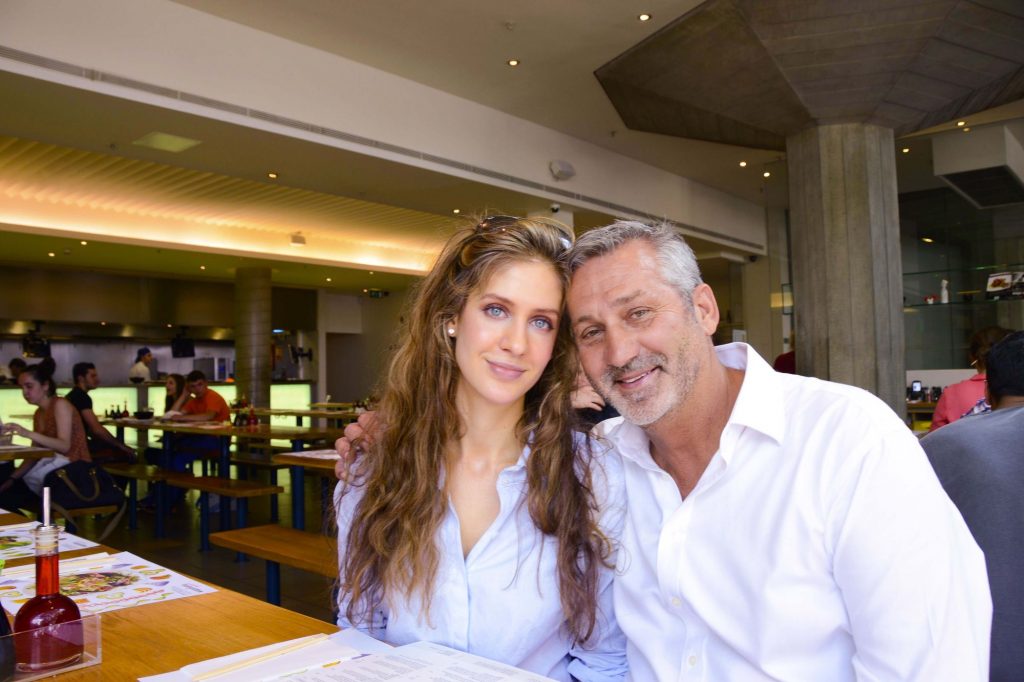
PHOTO SUPPLIED
“It was a bit of a nomadic existence going back and forth between New Zealand, Europe and the US, where Dad was also competing.”
When she was 15, Bianca was bitten by the political bug. “I don’t know why, because none of my family is political. But I realised the huge impact that elected representatives can have on their country and citizens. I became a real political nerd.”
I realised the huge impact that elected representatives can have… I became a real political nerd
She found her tribe while volunteering for local political parties. “I worked it out once, I must have knocked on something like 10,000 doors, which isn’t always fun because no one wants to talk politics at 8am on a Sunday when you’ve just woken them up! But it was a good skin-thickening exercise, which has since proved useful in journalism. I also learned a lot about politics and how campaigns work.”
Bianca signed up for a history degree at the University of Warwick, mainly because it included four months’ study in Venice, then chased that with conflict studies at the prestigious London School of Economics.
Politics, however, was always lurking in the margins, firstly in her job as a parliamentary researcher and later as a possible political candidate. Bianca was voted by her fellow students “most likely to become Prime Minister” and was encouraged to run in her local electorate “But,” she says, “at 24, I was way too young and didn’t have sufficient life experience.”
Journalism seemed the next best thing. “The press is fundamental to democracy and to giving people a chance to engage with it. My Polish grandfather survived four years in Auschwitz concentration camp and so many of his family were denied a voice, so to me, journalism is a way of giving people that voice.”
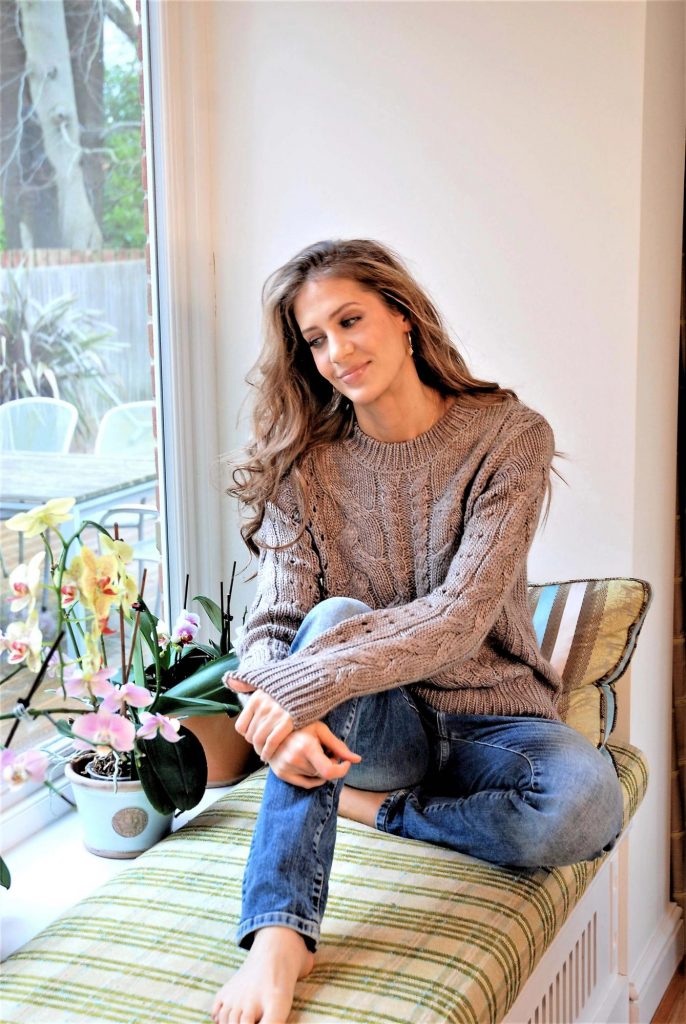
Bianca had been doing speech and drama as a way to correct a lisp since she was 10, so knew she had the presentation skills. She’d also built up a well of knowledge watching her Florida-based father, who’d become a golf commentator for NBC.
“Every holiday, I’d go to the US and hang out with Dad on set. I learned a lot about presenting, how the control room works, what to do and what not to do.”
She eventually ended up at CNN’s London HQ in a guest booking role for the network’s celebrity presenter, Richard Quest. One day in a meeting with the network’s top brass, she got her chance to shine.
“It was coming up to the 2017 general election and they were wondering why Theresa May’s popularity had taken a sudden dive. I spoke up, which earned me a lot of disapproving looks because I was a junior who wasn’t supposed to speak! But they kept asking me questions and I kept answering because I had some insight from working in Parliament. I knew I shouldn’t have been speaking, but I couldn’t help myself – I love politics so much.”
Her intelligence clearly impressed her bosses, who needed someone to cover Brexit. “No one else wanted to, but I love reading papers about fisheries and the single market, it’s the kind of nerd I am!”
She was asked to do a screen test and, two weeks later, Bianca was doing her first live cross from Downing Street. “Oh God, I look back at it now and it’s so embarrassing. Look it up on YouTube… actually, no don’t! I had zero idea what I was doing and no training.”
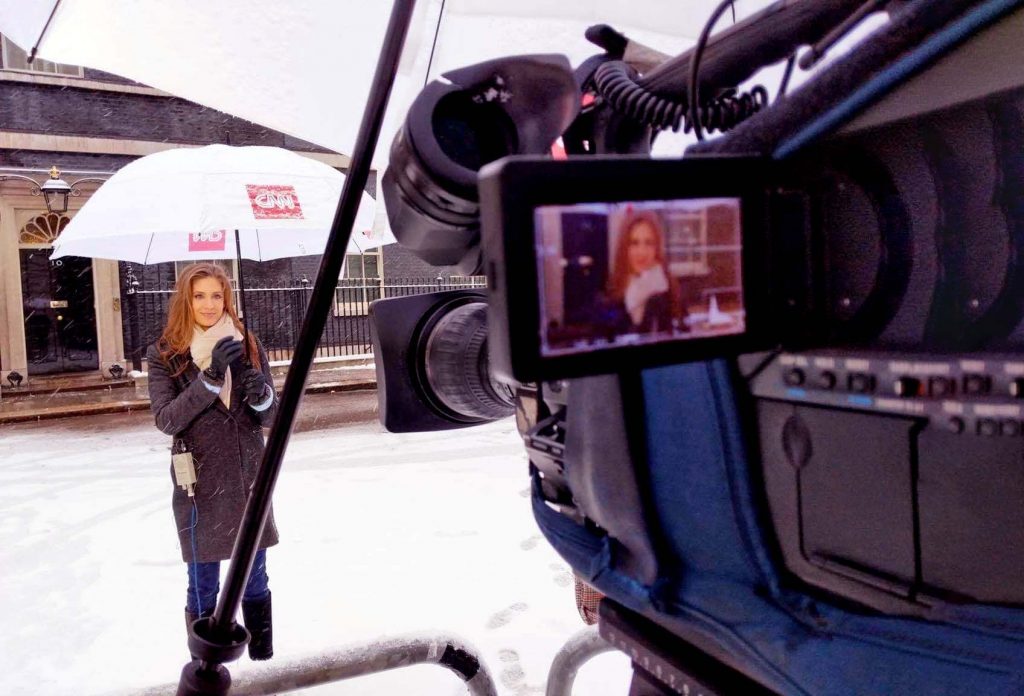
PHOTO SUPPLIED
By her third live cross, Bianca had found her groove. In the last two years, she’s notched up an impressive list of interview subjects, from London Mayor Sadiq Khan and former Labour leader Jeremy Corbyn to scientist Richard Dawkins. If you’d turned on CNN anytime in the last year, you would have seen Bianca’s megawatt smile on her own show, which the network launched in September 2019.
“It’s given me a platform to interview people who I’ve found even more impressive than politicians, like the woman who survived a gay hate crime, and a woman who had the laws changed in regards to upskirting, where people film under women’s skirts. These are the kind of people I find fascinating, who have something important to say.”
Playing in the big leagues at CNN has also had its perks, with Bianca regularly working with legendary anchors such as Christiane Amanpour and Wolf Blitzer. “They’re people I watched growing up, so to now be working alongside them is amazing.”
It’s hard not to feel envious when Bianca talks abut the people she’s met. “I ran into Tony Blair in the kitchen once when he was making a cup of tea, and my desk used to be next to the make-up room, so people like Cate Blanchett and Amal Clooney would walk past me. It was the best seat in the house!”
Having a bird’s eye view of history hasn’t been all been rainbows and unicorns, though. Reporting about terror attacks and other tragedies has taken its toll, admits Bianca, who can recall being at work when a migrant boat capsized off the coast of Italy. “I was talking to someone from the Italian Red Cross who was telling me about the bodies of dead babies floating past.” Ditto the London Bridge stabbings and the Manchester Arena bombing. “Those kind of things are horrific and you never get over them. It’s a real balance between making sure people’s voices are heard and not sensationalising it.”
Bianca admits she comes at stories slightly differently to her colleagues. “It isn’t in my nature to be aggressive. You’ll never get a politician to admit something if you’re shouting at them. My style is to be gentle and lull them into a sense of false security.”
Like many of us who make a living from telling other people’s stories, Bianca worries about the future of journalism.
“As we’ve seen with the pandemic, there’s been an explosion of social media reporting, often by influencers who don’t source or scrutinise their information. That can lead to false information which people believe. I know really intelligent people who spout conspiracy theories they’ve seen on Facebook, which really scares me. Yes, there’s a lot wrong with the mainstream media, but if we want democracy to survive, for a range of voices to be heard and for leaders to be held to account, then there has to be a free press.”
If we want democracy to survive, for a range of voices to be heard and for leaders to be held to account, then there has to be a free press
Is it strange that she and her father have both ended up working in television? “It is a bit, and yes, we do critique each other. Dad will send me unsolicited texts with things like, ‘Do you think your second question was appropriate?’ Or, ‘You paused too long after so and so’. We’re both really competitive Taureans and he turns everything into a competition. So, if I’ve just done four push-ups, he has to do six. We always push each other.”
Bianca still follows New Zealand politics from afar and says she’s proud of Jacinda Ardern’s “strong, decisive leadership”.
“I watched the leaders debates online and was so impressed with how civil they were, compared to other countries. Jacinda has created impact well beyond New Zealand and CNN has often reported on how well she’s done with the pandemic.”
Get Bianca onto the subject of her birth country and she’ll stay there a while.
“I’ve been thinking about New Zealand a lot during lockdown. I haven’t been back for eight years and I miss it so much, things like swimming in the ocean, hokey pokey ice cream and warm Christmases. My parents had a place in Arrowtown when I was growing up and it was so beautiful and peaceful. I’d love to be there right now.”
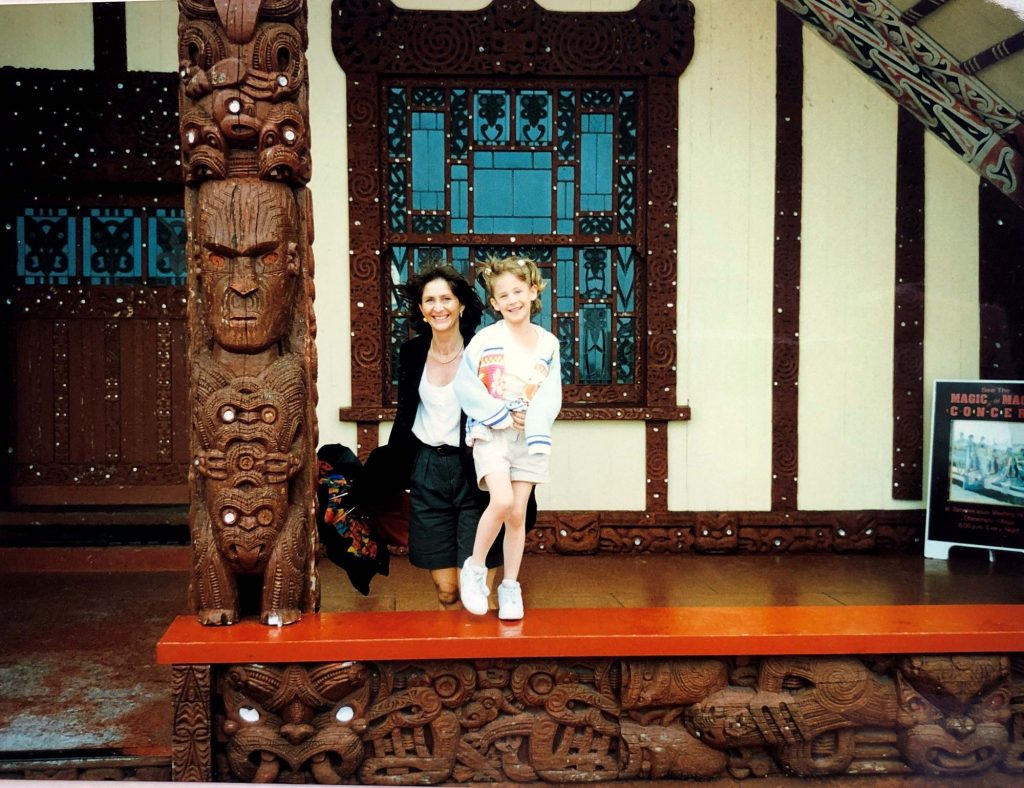
PHOTO SUPPLIED
She’d like to move back one day, but isn’t sure what she’d do for work. “My cheeky Nana says, ‘No one in New Zealand will want to listen to your Pommy accent!’ Which is my biggest, first-world problem – everyone thinks I’m English, but I have no English blood at all. I wear my All Blacks hoodie whenever possible. I have to represent!”
When she’s not kicking politicians’ butts, Bianca is kicking literal butt at her local boxing ring, a legacy of the martial arts she’s done since she was 10.
“I started off doing karate and eventually got into cage fighting. Sadly, I’ve had to dial that back because I don’t think my bosses would be happy if I turned up to work with black eyes or broken ribs,” she laughs.
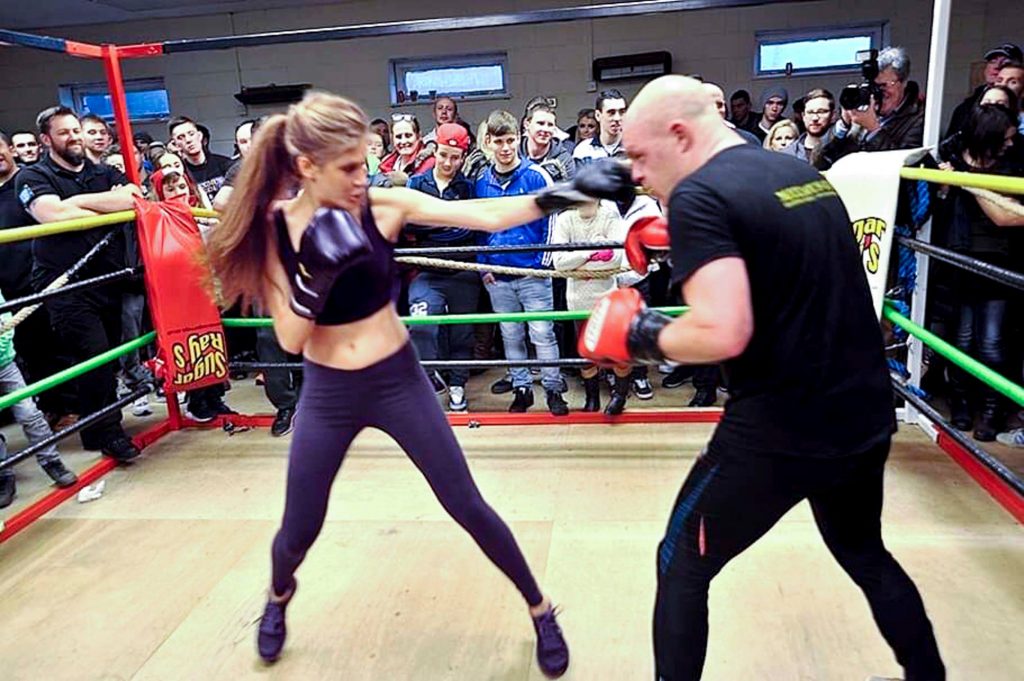
PHOTO SUPPLIED
Instead, she spars with “tattooed Londoners with shaved heads” at a spit-and-sawdust gym near her flat.
“Honestly, it’s like something out of Rocky! But it’s the complete opposite of the hairspray and false eyelash nonsense of my working days. I love it. Boxing keeps me fit and sane.”
Professionally, Bianca is ahead of her ambition to have her own show within five years. Her aim now is to create a show she can be proud of.
“I want to do work that’s synonymous with the truth and polite discussion that engages viewers. So many people have been turned off the news and I’d love for them to find a home with my show.”

